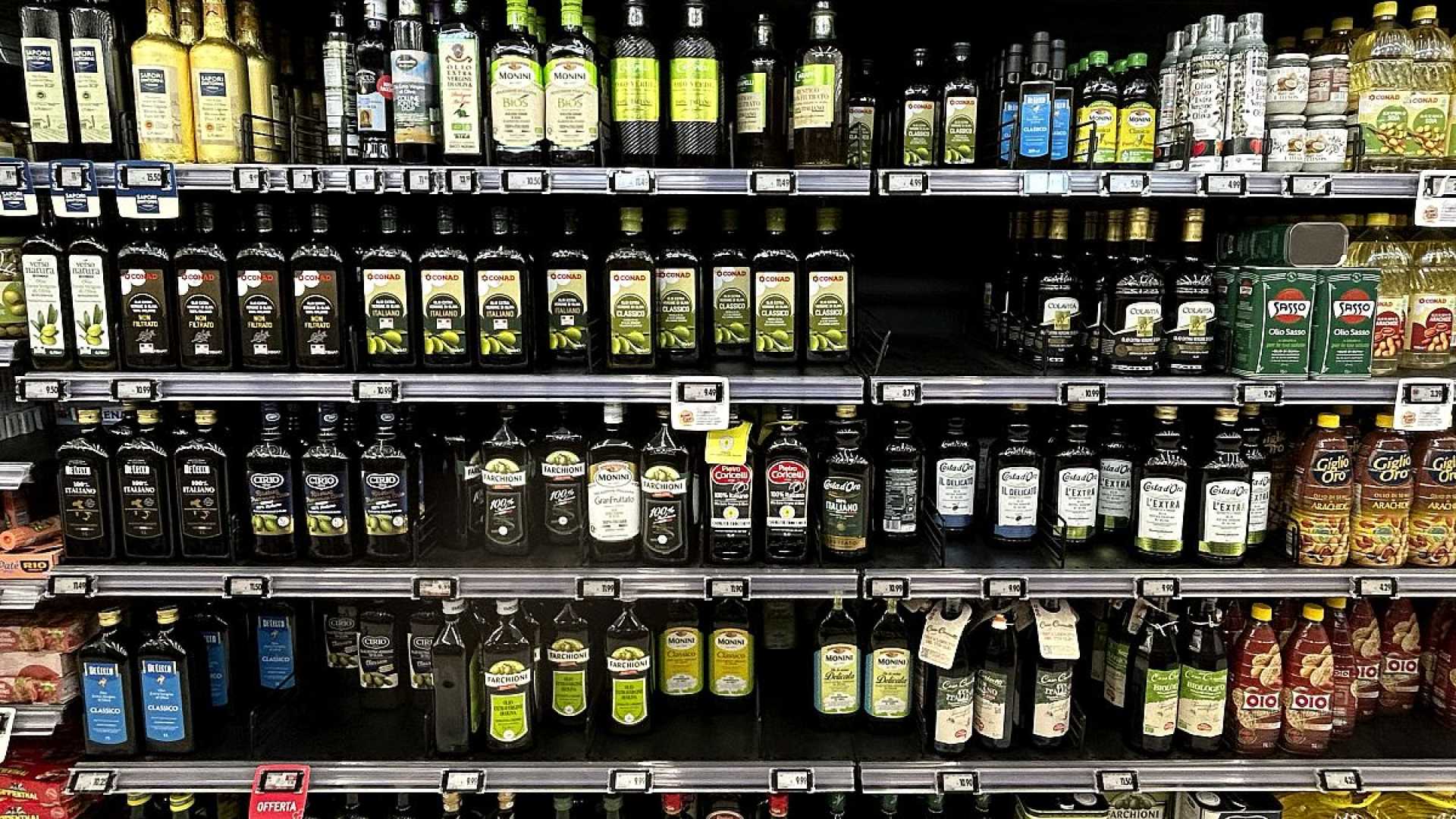Business
Experts Warn of Trade Shock from New Olive Oil Tariffs

WASHINGTON, D.C. — Experts are predicting significant consequences for the olive oil market following the announcement of a 20 percent tariff on all imports from European Union countries, a move described by Nobel Prize-winning economist Paul Krugman as the “biggest trade shock in history.” The tariffs, enacted under President Donald J. Trump, are expected to lead to higher prices for consumers and potentially reshape the international olive oil trade.
On April 6, 2025, the Trump administration confirmed the new tariffs, which apply to olive oil imports from key producing nations including Spain, Italy, Greece, and Portugal. U.S. producers and economic analysts warn that the tariffs will drive consumers toward cheaper, less healthy seed oils due to the increased cost of olive oil.
As reported by the United States Department of Agriculture (USDA), the U.S. imported approximately $713 million worth of olive oil from Spain in the past year, which saw a 57.7 percent increase in exports exceeding $1 billion. The combined import figures from Italy, Tunisia, Turkey, Greece, and other countries further illustrate the heavy reliance of U.S. consumers on foreign olive oil.
According to Krugman, the tariff calculations were based on a “weird calculation” by the Trump administration that took trade balances and import levels into account. He cautioned that the escalating costs would ultimately burden American consumers and disrupt international trade.
“They basically took each country’s trade balance with the United States, divided by the amount of their imports and cut that in half,” Krugman elaborated, emphasizing the unconventional nature of the tariff structure.
Following the tariff announcement, Dcoop, the world’s largest olive oil producer, expressed concern, stating that the imposed duties would harm international trade from producers to consumers. The firm indicated that olive oil not sold in the U.S. would find its way to other markets, aggravating competition and potentially driving prices downward, which could harm profitability across the production chain.
Institutions in Spain’s Andalusia region, noted for its olive oil production, are strategizing to navigate the anticipated trade disruptions. The regional government aims to unite agricultural sectors in search of more viable markets, mindful of the U.S. becoming less attractive for olive oil exports.
Last year, Andalusia’s olive oil exports to the U.S. amounted to €860 million ($945 million), with industry leaders now worried that the introduced tariffs may skew competition. María Morales, president of Asaja-Sevilla, highlighted concerns regarding how these imbalanced tariffs could advantage other Mediterranean countries, specifically Turkey.
Authorities in Italy described a precarious situation for their olive oil industry, which heavily relies on U.S. exports. Nicola Ruggiero, president of the Oliveti d’Italia Consortium, reiterated the vital importance of the U.S. market, stating, “The U.S. is the number one export market for Italian extra virgin olive oil.” With about €1.1 billion ($1.2 billion) in expected exports for 2024, Italian producers are bracing for a slowdown in sales and anxious about the consumer response to higher prices.
The Italian Trade Agency (ICE) has indicated uncertainty surrounds numerous sectors as April 9 approaches—the date when tariffs are set to be implemented. ICE warned operators that tariff exclusion mechanisms may be available for specific companies if domestic alternatives are not present within the U.S.
Large international bottlers are now exploring options for co-packing in the U.S. to mitigate the impact of the tariffs, as constructing new facilities is an unrealistic timeline. Walter Zanre, managing director of Filippo Berio UK, noted that the new tariffs present potential job relocation from Italy to U.S. facilities as they adapt operations to comply.
Meanwhile, Greek olive oil producers are also seeking intervention from their government to protect against the anticipated negative impact of the tariffs. Dimitris Evangelinos, a spokesperson for the Agricultural Cooperative of Organic Olive Producers of Olynthos, aired concerns over increased costs passed to consumers and farmers alike. The group, which exports about 20,000 tons of extra virgin olive oil to the U.S. annually, highlighted the need for governmental measures to alleviate the repercussions.
Overall, local experts maintain that the new tariffs could influence the entire agri-food sector, comprising around 37 percent of Greek exports to the U.S., valued at €450 million ($495 million). As the market braces for changes, the consensus amongst EU observers is that an immediate and unified response is critical.
Ricardo Serra, president of Asaja-Andalucía, remarked, “The EU cannot stand idly by in a world where trade balances are changing rapidly.” He emphasized the importance of adapting agricultural policies to withstand the impact of sudden shifts in international trade dynamics.












